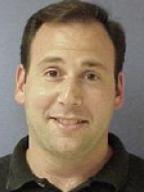
Biography
Education
- Ph.D. (2001) University of Massachusetts at Amherst, "Extra-Congressional Procedures in the New Legislative Process"
- M.A., Political Science (1996) University of Massachusetts at Amherst
- B.A., Political Science (1991) University of California at San Diego
Courses Taught
- 155 American Political Institutions
- 355 American National, State, and Local Governments
- 440 American Political Parties and Politics
- 443 The Legislative Process
- 444 Elections and Voting Behavior
- 446 The Presidency
- 490CA Supervised Individual Project-California Government
- 494I Internship
- 494J Judicial Internship
- 540E Seminar in American Government and Politics
Selected Publications and Presentations
- Doing the Right Thing: Collective Action and Procedural Choice in the New Legislative Process (Columbus, OH: Ohio State University Press, 2005).
- "Congressional Leadership on the Front Lines: Committee Chairs, Electoral Security, and Ideology." With Vincent G. Moscardelli in PS: Political Science and Politics [Forthcoming in January 2008].
- "Not on Your (Half) Life: The Partisan Geography of Nuclear Waste Disposal." With Vincent G. Moscardelli in Congress & the Presidency: A Journal of Capital Studies, Vol. 34, No. 1 (Spring 2007), 55-77.
Research and Interests
Professor Becker is currently working on a co-authored book project (with Dr. Cahn) examining the interplay between scientific expertise and stakeholder politics in the policy process. The book, Linking Science to Decision Making in Environmental Policy, is intended to contribute to the field of public policy by exposing, analyzing, and advancing a model of policymaking currently in use in the Marine Reserve Sanctuaries program that makes scientists and scientific expertise a part of the rulemaking process rather than an afterthought or an overseer.



